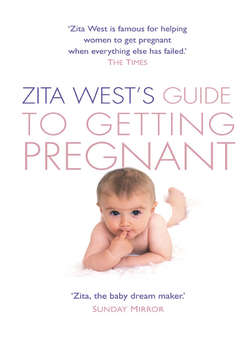Читать книгу Zita West’s Guide to Getting Pregnant - Zita WEST, Zita West - Страница 56
understanding male fertility
ОглавлениеMale Reproductive Organs
A man’s general health is just as important to conception as a woman’s, although this often gets overlooked by fertility experts, who tend to be gynaecologists and obstetricians – specialists in female, not male, reproductive health. And your health is never more important than when you and your partner are trying to conceive. Very often, problems in conception are thought to be wholly the woman’s, but this is not the case. When a couple have a problem with conception, the problem is only with the woman in around 35 to 40 per cent of cases and with the man between 30 and 35 per cent of the time. Problems that arise from combined difficulties in both partners account for the other 25 to 35 per cent of cases.
I do think that, slowly, the message is getting through: The health of the sperm is just as important as a woman’s gynaecological health when it comes to conception. At our clinic we will offer a semen analysis straight away; if you focus all clinical attention on the woman, valuable fertility time may be wasted.
Unlike women, men do not have cycles which could alert them to the fact that there may be problems – so very often it can come as a real shock when the results of a semen analysis are poor. And semen analysis is only part of the story: the sperm may look fantastic but there may be infections or DNA fragmentation, which will not show up on semen analysis. Specimens sent to standard general microbiology or pathology labs may not receive immediate attention, and morphology assessment in particular (see page 286) may be inadequate, giving false or misleading results. We have seen this happen so many times.
Twenty-five per cent of male infertility remains unexplained. Sperm counts have been steadily declining over the last 50 years. Scientific evidence clearly points towards our constant exposure to toxins in our everyday modern lives, contributing to our reproductive downfall. These factors are known to affect male reproductive function seriously, and may well contribute to this high number of unexplained cases.
Insufficient emphasis is put on the contribution of lifestyle factors to sperm quality and male infertility. Infertility is multi – factorial and, in many cases, the severity of male infertility is exacerbated by lifestyle factors, which can and should be addressed to optimize whatever fertility potential there is. Even if the semen analysis is good, good sperm genetic health and metabolic fitness can always be improved by cutting down on the lifestyle factors that are known to harm the sperm, and eating a good healthy diet to reduce oxidative damage to the sperm.
